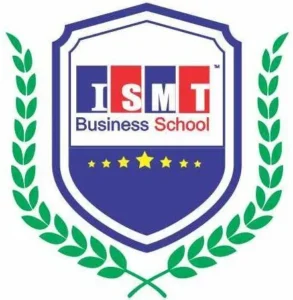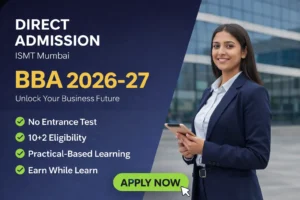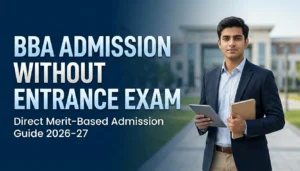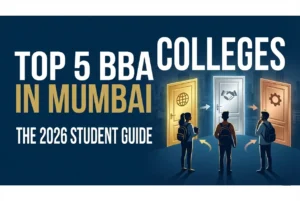1) Introduction
If you want to switch careers, add high-impact skills to your CV, or grow traffic and sales for your business, a digital marketing course is one of the quickest ways to get practical, on-the-job-ready experience. This guide is written from the perspective of an industry practitioner with 10 years of hands-on digital marketing experience and focuses on what actually moves the needle for hiring managers and small businesses.
2) What is a digital marketing course
A practical digital marketing teaches the tactics, tools, and measurement methods used to attract and convert customers online. Rather than only theory, the best programs let you run real campaigns, analyze results, and create assets (landing pages, ads, content) you can show in interviews. Expect modules on search, ads, social, content, email, analytics, and basic web fundamentals.
3) Core modules you should expect
Below are the essential modules every serious course should include, with what you’ll actually learn in each.
SEO (Search Engine Optimization)
- Keyword research, on-page optimization, technical SEO basics (sitemaps, robots, page speed)
- How to run a site audit and prioritize fixes
- Content strategy for organic growth
SEM / Paid Search (Google Ads)
- Campaign structure, bidding basics, keyword match types
- Writing effective ad copy and A/B testing
- Measuring ROI and troubleshooting performance drops
Social Media Advertising
- Campaign setup for Meta (Facebook/Instagram), LinkedIn, and X (Twitter)
- Creative testing, audience targeting, and budget allocation
- Reporting on conversions vs. impressions
Content Marketing & Copywriting
- Content planning, editorial calendars, and conversion-focused copy
- Repurposing content across channels
- Story-led case studies and long-form content strategy
Email Marketing & Automation
- Building segmented lists, drip campaigns, and measuring deliverability
- Creating workflows for onboarding, retention, and cart recovery
Analytics & Reporting
- Google Analytics (GA4), conversion tracking, UTM tagging
- Dashboards that answer business questions (not just data dumps)
- Attribution basics and how to present results to stakeholders
Basic Web & UX for Marketers
- Landing page best practices, CRO (conversion rate optimization) tests
- Basic HTML/CSS awareness for quick fixes or briefings with developers
E-commerce & Paid Media Strategy
- Product feeds, shopping campaigns, and marketplace basics
- LTV (lifetime value) and CAC (customer acquisition cost) fundamentals
4) How skills are taught — projects, tools, assessments
The difference between a certificate and a career is practical work. Here’s how a strong course delivers real skills:
- Live projects: Manage a live ad campaign or SEO project for a real or simulated brand.
- Tool-based labs: Hands-on work in Google Ads, GA4, Meta Ads Manager, SEMrush/Ahrefs, Mailchimp/HubSpot.
- Portfolio assignments: Build a portfolio with case studies showing objectives, tactics, metrics, and learnings.
- Assessment: Practical exams — not only quizzes — e.g., “Set up and optimize this campaign in two weeks.”
- Mentorship & feedback: Regular review sessions with faculty or industry mentors.
5) Certifications and tools worth targeting
Earning vendor certifications makes you more visible to recruiters and shows practical competence.
- Google: Google Ads and Google Analytics (GA4) certifications.
- Meta: Meta Blueprint certificates for advertisers.
- HubSpot: Content and email certifications for inbound marketing.
- Industry tools: Familiarity with SEMrush, Ahrefs, Google Search Console, Canva, and an email platform (Mailchimp/HubSpot).
A good course prepares you to take these exams and use the tools confidently.
6) Careers you can start after the course
A digital marketing course opens pathways to roles like:
- SEO Specialist
- PPC / Paid Media Analyst
- Social Media Manager
- Content Strategist / Copywriter
- Email Marketing Specialist
- Growth Marketer / Performance Marketer
- E-commerce Marketing Executive
Many learners begin in a junior role and move to mid/senior levels with 18–36 months of hands-on experience and measurable results.
7) How to choose the right digital marketing course
Here’s a short checklist to evaluate options. Prefer programs that meet most items below.
- Practical projects: Do students complete real campaigns?
- Portfolio outcome: Will you leave with 3–5 case studies?
- Tool access: Do you get hands-on time with Ads managers, GA4, and SEO tools?
- Faculty experience: Are instructors active practitioners with measurable results?
- Career support: Placement assistance, interview prep, and resume review.
- Batch size & mentorship: Smaller cohorts and regular mentor reviews matter.
- Certification prep: Does the course prepare you for Google/Meta/HubSpot exams?
- Alumni outcomes: Can you see graduate profiles and placement stats?
If you’re comparing two similar programs, prefer the one that guarantees live project time and portfolio deliverables.
8) What ISMT Business School offers & how to contact them
ISMT Business School provides industry-focused training designed to prepare students for marketing roles in today’s job market. The school is located at:
ISMT Business School
Opp. Arunkumar Vaidya Ground, Next to Old MHB Colony Bus Stop, Old MHB Colony, 3 min from Don Bosco Signal, Gorai Road, Borivali-West, Mumbai-91
Website: www.ismtindia.com
Contact: +91-9930526101, +91-8976055540
Email: info@ismtindia.com
If you’re looking for a practical digital marketing course with live projects, local campus support in Mumbai, and career guidance, visit the website or drop by the campus to discuss batch timings, syllabus, and placement support.
9) Helpful enhancements
Use these to get started before or during the course.
30-Day Quick Wins checklist
- Week 1: Set up Google Analytics + GA4, and create UTM naming conventions.
- Week 2: Run a small social ad with a ₹500–₹2,000 test budget to learn ad setup and reporting.
- Week 3: Perform a technical SEO audit (speed, mobile friendliness, indexability).
- Week 4: Draft a 4-post content calendar and track engagement metrics.
Interview-ready portfolio template (1-page case study)
- Objective (what business need)
- Strategy (brief)
- Actions taken (tools, tactics)
- Results (metrics and what you learned)
- Next steps (what you’d test next)
Top tools to become comfortable with
- Google Ads, GA4, Google Search Console
- Meta Ads Manager
- SEMrush / Ahrefs / Moz
- Canva / Figma (basic creative)
- Mailchimp / HubSpot (email/automation)
10) FAQ
Q: How long is a typical digital marketing course?
A: Course length varies — short bootcamps run 8–12 weeks, professional certificates 3–6 months, and diploma programs 9–12 months. Choose based on your time availability and the depth of projects offered.
Q: Will I get a job after completing the course?
A: Completion improves your chances, especially if the course includes live projects, interview prep, and placement support. Success also depends on portfolio quality and networking.
Q: Do I need coding experience?
A: No. Basic HTML/CSS knowledge helps for landing page adjustments, but most marketing work uses tools and platforms rather than heavy coding.
Q: Which certifications should I aim for?
A: Start with Google Ads and GA4, then add Meta Blueprint and HubSpot depending on your focus. These are widely recognized by employers.
Q: Is a digital marketing course suitable for entrepreneurs?
A: Absolutely. Entrepreneurs benefit from learning how to measure customer acquisition costs, run low-budget campaigns, and optimize conversion funnels.
Q: How is ISMT Business School different?
A: ISMT offers in-person support in Borivali-West, practical project work, and guidance designed to build a job-ready portfolio — visit www.ismtindia.com to learn about current batches and syllabus.
Final thoughts
A digital marketing course is most valuable when it gets you hands-on with real campaigns and teaches you to read the numbers. Focus on courses that leave you with tangible work: campaigns you ran, dashboards you built, and case studies you can share in interviews. If you want local, campus-based guidance in Mumbai, ISMT Business School (www.ismtindia.com) can be a good place to discuss options in person.





